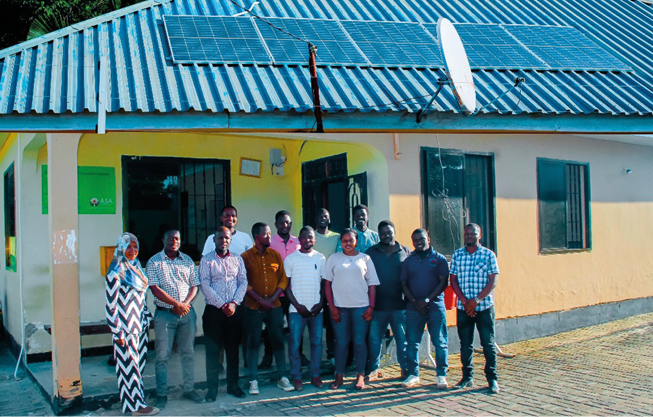Mitigation of emissions
In pursuit of sustainability, the Group has initiated efforts to diminish its environmental impact. Identifying critical areas, they have enacted short-term, focused measures to decrease carbon emissions, enhance energy efficiency, and preserve essential resources.
Guided by its Environmental and Social Management System (‘ESMS’) and environmental policy, the Group is committed to responsible environmental stewardship. These frameworks outline clear policies and procedures to minimise negative impacts and promote sustainable practices across its operations.
Through its exclusion list, the Group upholds rigorous standards for responsible investment. By refraining from financing activities that could harm biodiversity or the environment, the Group ensures that its business practices align with its environmental values and adhere to international conventions.
The Company actively promotes responsible and sustainable travel practices, particularly emphasising eco-conscious decisions in air travel, as outlined in its travel policy effective December 2022. While acknowledging the importance of visiting operations and engaging with clients and colleagues in person, the Company remains committed to minimising its environmental impact. Through these efforts, the Company aims to align its travel decisions with its sustainability goals.
The Company adheres to the Streamlined Energy and Carbon Reporting (‘SECR’) standard. This initiative enables the Company to disclose its energy and carbon data, facilitating the monitoring of emissions and energy efficiency efforts over time. Through SECR, the Company ensures transparent and consistent reporting of its environmental impact, thereby identifying opportunities for further improvements in sustainability performance.
Adaptation to climate change
The Group recognises that climate change poses a risk to its operations and acknowledges the need to address this risk. To ensure transparency and accountability, the Company is committed to aligning with the Task Force for Climate-related Financial Disclosures (‘TCFD’) framework, enabling disclosure to investors and stakeholders regarding its strategies to manage climate-related risks and opportunities.
The Group assesses the impact of natural disasters, such as floods and earthquakes, on its resources and overall operations. This analysis offers valuable insights into the Company’s susceptibility to such calamities, identifying areas that may require adaptation to mitigate risks. The assessment confirms that seven of the operating subsidiaries have been impacted by 34 natural calamities this year, with operational and financial impact in nine cases. The Philippines is most frequently affected by natural calamities, the majority of which are seasonal storms and flooding.
The Emergency Preparedness and Response Plan (‘EPRP’) is crucial for the Company’s adaptation efforts, particularly in the face of increasing natural disasters. Its objective is to protect resources, clients, and staff, ensuring the integrity of critical information and sustaining essential operations and services. The plan outlines strategies and procedures for emergency management and response. With the EPRP in place, the Company can effectively prepare for and mitigate the impacts of emergency situations, enhancing resilience in times of adversity.

Case study: Electrifying operations at ASA Myanmar
In 2023, ASA Myanmar integrated eight electric motorbikes into its operations, primarily assigning them to Development Officers and ABMs engaging with clients. The bikes were strategically placed across several branches to enhance outreach efficiency.
The adoption resulted in significant fuel savings, estimated at over 2,400 litres annually compared to traditional fuel-based bikes. Despite encountering challenges such as government restrictions on motorcycle use in certain Yangon townships, ASA Myanmar innovatively replaced electric bikes with battery-powered ones in affected areas.
The transition yielded multiple benefits, including reduced operational costs, noise pollution mitigation, and heightened environmental sustainability. Charging convenience and lower fuel expenses further bolstered the advantages.
Staff members favoured electric bikes due to their comfort, cost-effectiveness, and compliance with government regulations. ASA Myanmar plans to expand electric bike usage in 2024, focusing on areas where traditional motorcycles face restrictions.
While regulatory hurdles and maintenance costs persist, the shift towards electric bikes aligns with the growing demand in Myanmar, fuelled by governmental mandates and environmental consciousness.

